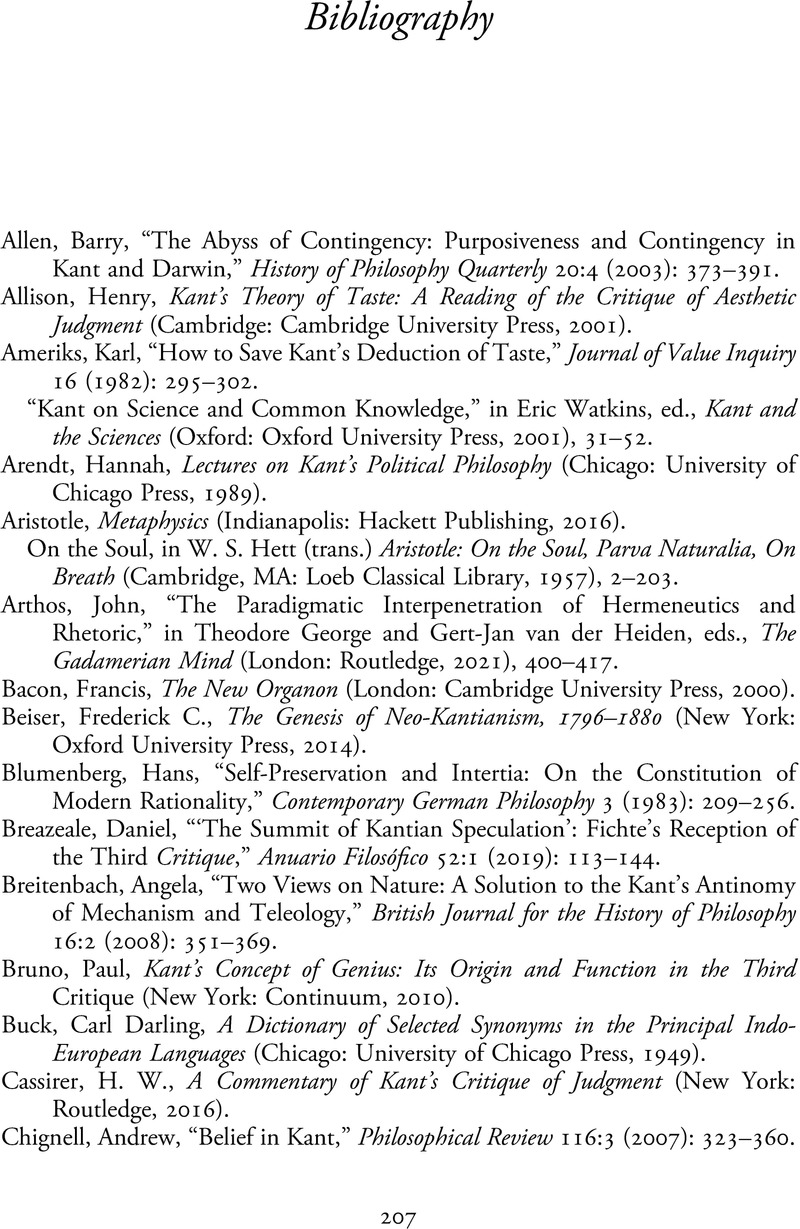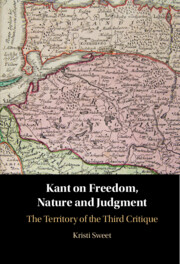Book contents
- Kant on Freedom, Nature, and Judgment
- Kant on Freedom, Nature, and Judgment
- Copyright page
- Dedication
- Epigraph
- Contents
- Acknowledgments
- Abbreviations
- Introduction
- 1 Reason, Hope, and Territory
- 2 Reflection, Purposiveness, Metaphysics
- 3 “Life” and the Ideal of Beauty
- 4 The Sensus Communis and the Ground of the Critical System
- 5 Genius, Aesthetic Ideas, and a Spiritualized Natural Order
- 6 The Domain of Nature as System: Ends
- 7 Hope and Faith: God in the Critique of Teleological Judgment
- Conclusion
- Bibliography
- Index
- References
Bibliography
Published online by Cambridge University Press: 07 August 2023
- Kant on Freedom, Nature, and Judgment
- Kant on Freedom, Nature, and Judgment
- Copyright page
- Dedication
- Epigraph
- Contents
- Acknowledgments
- Abbreviations
- Introduction
- 1 Reason, Hope, and Territory
- 2 Reflection, Purposiveness, Metaphysics
- 3 “Life” and the Ideal of Beauty
- 4 The Sensus Communis and the Ground of the Critical System
- 5 Genius, Aesthetic Ideas, and a Spiritualized Natural Order
- 6 The Domain of Nature as System: Ends
- 7 Hope and Faith: God in the Critique of Teleological Judgment
- Conclusion
- Bibliography
- Index
- References
Summary

- Type
- Chapter
- Information
- Kant on Freedom, Nature, and JudgmentThe Territory of the Third <i>Critique</i>, pp. 207 - 213Publisher: Cambridge University PressPrint publication year: 2023

